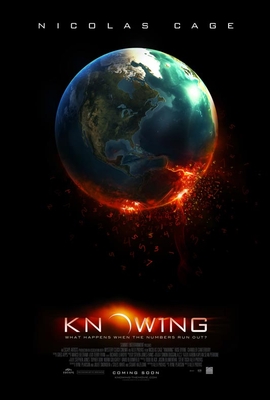 It is often said that the point at which M. Knight Shyamalan went off the rails was with his totally miscalculated Lady In The Water, the critical and commercial flop that, amongst other things, featured the director playing a writer who ends up saving the world, and a film critic who gets devoured by sea beasts. I'd better watch out. However, those who were paying attention could easily trace the point at which this otherwise interesting filmmaker began to lose it to about 95 minutes into Signs. Because it is at around that mark that the disillusioned vicar, Mel Gibson, begins to regain his faith, following an alien invasion. Amongst other questions (including "why does evidence of alien life rekindle your faith in Christ?") the most pressing is "why is there this awkward religious moral spoiling the end of my otherwise passable sci-fi thriller?"
It is often said that the point at which M. Knight Shyamalan went off the rails was with his totally miscalculated Lady In The Water, the critical and commercial flop that, amongst other things, featured the director playing a writer who ends up saving the world, and a film critic who gets devoured by sea beasts. I'd better watch out. However, those who were paying attention could easily trace the point at which this otherwise interesting filmmaker began to lose it to about 95 minutes into Signs. Because it is at around that mark that the disillusioned vicar, Mel Gibson, begins to regain his faith, following an alien invasion. Amongst other questions (including "why does evidence of alien life rekindle your faith in Christ?") the most pressing is "why is there this awkward religious moral spoiling the end of my otherwise passable sci-fi thriller?"
The very same could be said of Alex Proyas' Knowing which, until the last 20 minutes, is a reasonable sub-Shyamalan sci-fi thriller. However, whereas the rejuvenated vicar feels more like a footnote to Signs, the religious message at the end of Knowing is more of a thorough underlining. Many critics have said that it's the end of the film that makes up for its lacklustre opening. A film promising the end of the world has to deliver, and deliver it does. There are lots of explosions. People, buildings, and a moose are all set ablaze. Mostly, it looks great, apart from a rather dodgy subway train wreck. But it is the film's opening – the well paced discovery of the sequence of numbers that predicts the end of the world, the figures in the woods and laughably wooden performances – that make Knowing's finale so disappointing. It's hard to describe just why the film's finish is so shockingly off-key, but let's just say that it features a deus ex machina so literal that Euripides might have thought twice. And, as soon as this resolution is introduced, all of the well-staged creepiness that came before – not to mention the sheet with all those numbers on it, which is the driving force of the plot – completely disappears! Handy thing, religion: it's very good at getting all those difficult questions to disappear.
Nicholas Cage has become an actor whom it is easy to ridicule but, looking back over his past performances (Raising Arizona, Leaving Las Vegas and Adaptation all come to mind) it seems like his problem is not his acting skills, but his agent. His performance is laughably equine, but this is all in the name of hokey fun, and his bellows and mumbles are a great source of amusement, at least until the film's end. More often than not, he is upstaged by Chandler Canterbury, who plays his nine-year-old son, Caleb (great name). The cinematic gods have taken pity, though, because his female lead is played by Rose Byrne, who does little other than shriek (again, to many hoots of laughter from the audience).
All of this is forgivable, however, until the film's conclusion, and when every religious cliché from angels to the Garden of Eden is thrust toward you with little precedence or explanation, it is hard not to look back on the previous two hours with little other than irritated bafflement. At best, it feels weird and inappropriate, and at worst, it feels offensive, and like two different films have been shoved together at the last minute. Proyas' last film, I Robot, an adaptation of various Isaac Asimov stories, was widely criticised for its shameless product placement. It seems that, between projects, he's come under the pay roll of a higher power. I, for one, preferred Coca-Cola and Nike propaganda.

